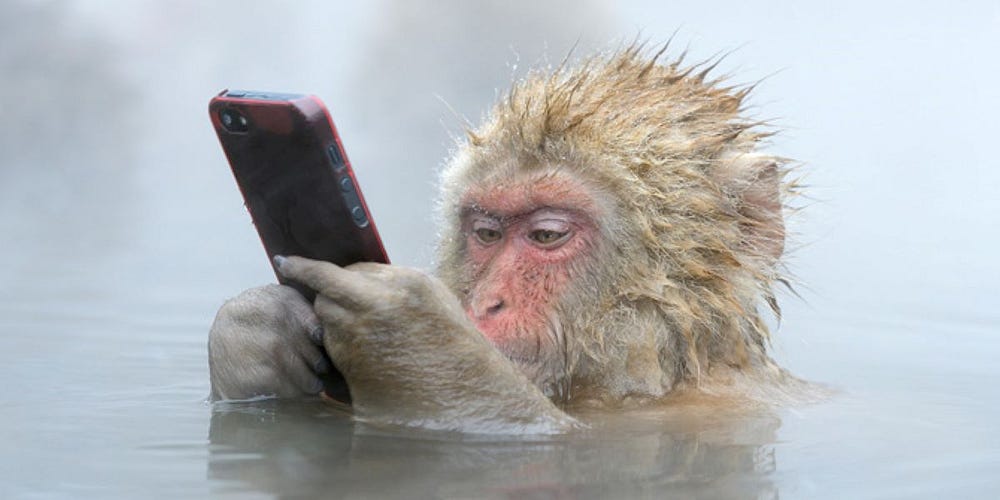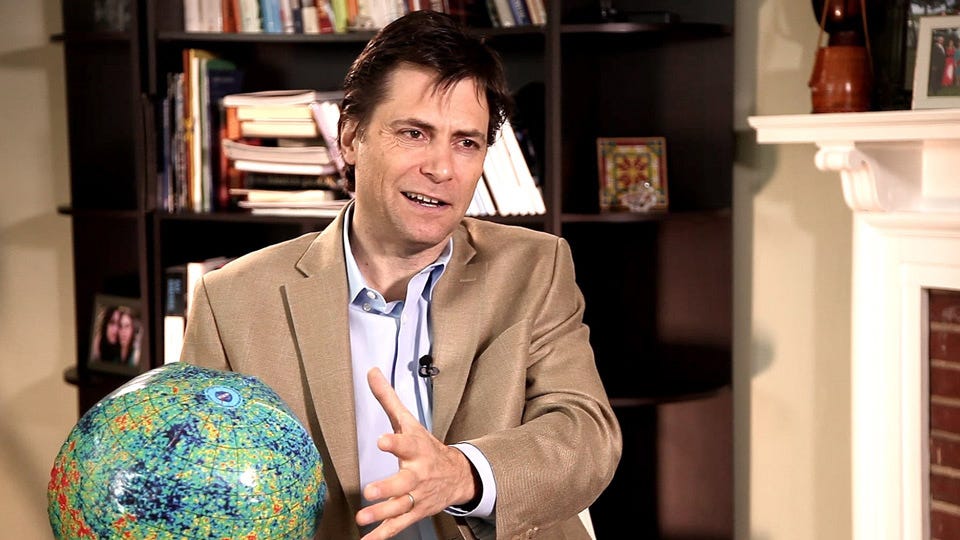The well-known physicist and AI expert Max Tegmark once wrote the following: “As we prepare to be humbled by ever smarter machines, I suggest that we rebrand ourselves as Homo sentiens!” Is this yet another attempt to place human beings at the top of the universal pile?

I came across a passage written by the Swedish-American cosmologist, physicist and machine learning researcher Max Tegmark in which he seems to be at pains to find abilities (or general characteristics) which truly distinguish human beings from all other… things in the Universe. Alternatively, Tegmark is simply expressing the general mindset of what he calls “we humans”.
This is the passage in full:
“Philosophers like to go Latin on this distinction, by contrasting sapience (the ability to think intelligently) with sentience (the ability to subjectively experience qualia). We humans have built our identity on being Homo sapiens, the smartest entities around. As we prepare to be humbled by ever smarter machines, I suggest that we rebrand ourselves as Homo sentiens!”
Human Beings are Extra Special and Unique?

So what’s the passage above all about?
Is it Max Tegmark’s expression of the strong need which so many human beings (or Homo sapiens) have to distinguish themselves from literally everything else?
For centuries, even for millennia, we humans have attempted to distinguish ourselves from other animals — and all else — in the Universe by our sapience. And now that this project has failed (as least according to Tegmark above), now it’s sentience’s turn to be our trump card.
So the same game simply repeats itself.
All sorts of things have been suggested to account for human specialness and uniqueness. That long list includes: language, opposable thumbs, walking upright, big brains, meaning, love, religion, empathy, the ability to play soccer, etc. Thus, the goalposts have kept on shifting. However, arguably some of these traits, abilities or characteristics are still deemed to make us human beings extra special and unique.
Yet, yes, it’s obviously the case that we human beings can do things which no other animal and no computer could ever do. No one would ever deny that.
Thus, human beings can create great — or even insignificant — works of art. No animal can do that. (Some computer programmes — arguably - can do the latter. See ‘Can Computers Create Art?’.) We humans can create religions, fly to the moon, cure diseases, build computers, “see” the truth of Gödel sentences, tell jokes, etc. No animal can do any of these things. And, as yet, no computer (at least without human input) can do any of these things either…
Actually, only a few human beings can do most — or even all — of the things just cited. However, perhaps all human beings have “the potential” to do all of them (see ‘Human potential’)…
But is that true? And what does “human potential” mean in this context?
So can we draw any general conclusions from these (seemingly) unique human abilities? And is there a single unique… something which characterises all of them and which is “purely human”?
As already stated, human beings are indeed unique. However, so too are cockroaches, ants, satellites, stars, bacteria, electrons, etc.
In addition, human beings can do things which animals can’t do. However, every animal can also do things which human beings can’t do.
So are there abilities or characteristics that we humans have, but which other animals and computers don’t have? And are these abilities more important and more unique than all the abilities which animals and computers have, but which we humans don’t have?
Or is it simply that we humans are unique in some extra-special way (or ways)?
Perhaps we are. However, how could that ever be established?
[Much of the above can be placed under the classification anthropocentrism. In addition, some responders have said that I’m really referring to Western culture — and its attitudes — in the above. Indeed, there may be an element of truth to that. That said, it depends on the non-Western cultures which do and don’t differ. And, in parallel, no blanket statement can be made about Western culture either when it comes to this specific subject.]
Sapience and Sentience
Max Tegmark himself believes that the meaning of the word sapience is “the ability to think intelligently”. Of course, the word “intelligence” is one of the slipperiest words around.
For a start, on many readings, an ant or even a cockroach is intelligent — or at least it acts or behaves intelligently. Indeed, the mathematical physicist Roger Penrose writes:
“[T]he behaviour pattern of an ant is enormously complex and subtle. Need we believe that their wonderfully effective control systems are unaided by whatever principle it is that give us our own qualities of understanding?”
And similar things can be said of most — or even all — computers (or computer programmes).
So we can’t decide if it’s (what Penrose — again — would call) “genuine intelligence” until we define “intelligence”. And that’s the problem! Thus, we’ve just moved from sapience to “the ability to think intelligently” to the word “intelligence” on its own.
Now what about Tegmark’s personal choice: sentience?
Sentience doesn’t really help us distinguish ourselves from a whole host of other animal species either. So, in that limited sense, surely sentience can’t play the role previously played by sapience (i.e., when it came to arguing for human specialness and uniqueness). Surely most animals must instantiate varying degrees of sentience too. And, as we’ve seen, perhaps that’s also true of sapience.
In neither the case of sapience nor sentience, then, do we have (as it were) ultra-uniqueness when it comes to human beings.
Finally, it can be noted that human(?) consciousness itself (i.e., not Homo sapiens generally) is said to fall into this category of extra specialness and uniqueness. (In a recent essay, I wrote on this subject.)
Consciousness or Human Consciousness?
In detail. It is argued that consciousness isn’t like other natural phenomena (such as photosynthesis, combustion, cognition and even life itself). Indeed, even many physicalists, naturalists, evolutionary theorists, neuroscientists, etc. freely admit that consciousness isn’t really like other natural phenomena. However, and in many respects, no given natural phenomenon is like any other natural phenomenon. (Think here of an electron’s charge, and then compare that to the mating habits of a baboon.)
Yet consciousness most certainly does have distinct features…
Yet so too does every other natural phenomenon. (Now think of how high a flea can jump relative to its size, or consider superfluidity.)
So are the unique characteristics of consciousness more unique than all these other examples of (as it were) natural uniqueness?
How on earth could a question like that be answered?
And isn’t it actually the case that we adult human beings take consciousness to be unique and extra special simply because consciousness is very important to us? In addition, isn’t all this at least partly down to the fact that we have (at least on most accounts) first-person access to our own consciousness?
********************************
Note: Qualia
It’s interesting that Max Tegmark has used the technical term “qualia” in his definition of sentience. (The term is largely found in analytic philosophy, though it dates back to 1866.)
Even if we accept the existence of qualia (which will depend on what qualia are taken to be), do we actually “experience qualia” or is experience actually constituted by qualia? That is, is each experience (as it were) made up of qualia? Thus, surely we can’t firstly have an experience, and only then do we experience qualia. If that were the case, then an experience and qualia would be two separate things and/or two separate events (which would be separated in time).
My flickr account.










No comments:
Post a Comment